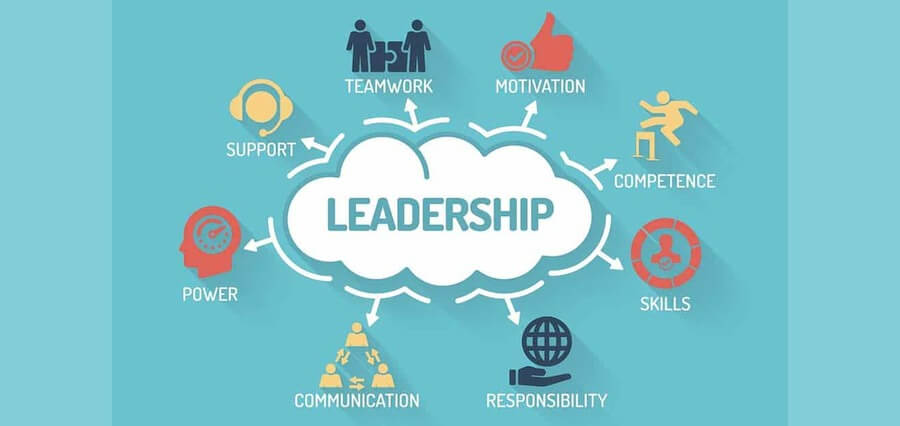In the demanding and competitive age, effective leadership has never been more critical. With rapidly evolving technologies, globalization, and dynamic market conditions, organizations face constant challenges to stay ahead. Competent leaders must not only navigate their companies through these complexities but also inspire their teams to perform at their best. Let us delve into the essential leadership principles that are vital for success in the competitive age, exploring how these principles drive innovation, foster resilience, and ensure sustainable growth.
Visionary Thinking
A key principle of leadership in the competitive age is visionary thinking. Competent leaders possess the ability to envision a future that goes beyond the current state of affairs. They anticipate trends, identify potential opportunities, and formulate strategies to achieve their vision. By setting a clear and compelling direction, leaders rally their teams and stakeholders around a shared purpose, aligning efforts toward a common goal. Visionary leaders, like Elon Musk of Tesla, have transformed entire industries by envisioning a world powered by sustainable energy and electric vehicles, challenging the status quo and inspiring innovation.
Adaptability and Agility
In the competitive age, change is constant, and companies must adapt quickly to stay relevant. Leaders who prioritize adaptability and agility can respond promptly to shifting market demands, emerging technologies, and unforeseen challenges. They create a culture that embraces change and fosters a mindset of continuous improvement. Netflix’s CEO, Reed Hastings, demonstrated adaptability by transforming the company from a DVD rental service to a global streaming platform, effectively leading the disruption of the entertainment industry.
Empowering and Engaging Teams
The success of any organization relies heavily on the collective efforts of its teams. In the competitive age, competent leaders empower and engage their employees, recognizing that a motivated workforce is a strategic advantage. These leaders delegate responsibility, provide opportunities for growth and development, and ensure open channels of communication. Empowered teams feel a sense of ownership in their work, leading to increased productivity, innovation, and ultimately, better business outcomes.
Customer-Centric Approach
In order to sustain and grown in the competitive environment, customer satisfaction and loyalty are paramount. Leaders who prioritize a customer-centric approach gain a deeper understanding of their target market, allowing them to tailor products and services to meet specific needs. They invest in customer feedback and data analytics to inform decision-making and drive continuous improvement. Amazon’s customer-obsessed philosophy, exemplified by its founder Jeff Bezos, has been a key factor in the company’s success, maintaining customer loyalty and driving relentless innovation.
Ethical Leadership and Corporate Social Responsibility
In a highly competitive landscape, ethical leadership and corporate social responsibility (CSR) have become essential. Competent leaders uphold the highest ethical standards, ensuring transparency, fairness, and integrity in their operations. They prioritize CSR, recognizing their responsibility to society and the environment. Embracing CSR not only enhances a company’s reputation but also fosters employee morale and attracts socially conscious customers. Companies like Patagonia, under the leadership of Yvon Chouinard, have demonstrated a strong commitment to environmental sustainability and ethical practices, resonating with their target audience and driving brand loyalty.
Innovation and Continuous Learning
Innovation is the driving force behind success in the competitive age. Leaders who prioritize innovation foster a culture of creativity, experimentation, and risk-taking. They encourage their teams to think outside the box and challenge conventional norms. Additionally, competent leaders understand the importance of continuous learning, both for themselves and their employees. They invest in employee training and development, ensuring that their teams remain equipped with the skills and knowledge needed to excel in a rapidly evolving landscape.
Strategic Partnerships and Collaborations
No company can thrive in isolation. It is necessary for the management to understand the market, industry trends and innovate its products and services accordingly. Competent leaders recognize the value of strategic partnerships and collaborations. By forming alliances with other organizations, companies can access new markets, share resources, and leverage each other’s strengths. Strategic partnerships also foster innovation through the exchange of ideas and expertise. An excellent example of this is the partnership between Starbucks and Spotify, which allows Starbucks customers to personalize their in-store music experience and drives customer loyalty.
Towards Fulfilling Success
Leadership principles play a pivotal role in determining an organization’s success. Visionary thinking sets the direction, while adaptability and agility enable companies to respond to changing circumstances. Empowering and engaging teams drive innovation and productivity, and a customer-centric approach ensures lasting customer loyalty. Ethical leadership and corporate social responsibility build trust and reputation, while innovation and continuous learning foster growth and relevance.
As we circumvent through the complexities of the modern world, leaders must embrace these principles and strive to embody them in their leadership style. By doing so, they can create a dynamic and thriving organizational culture that is capable of withstanding the challenges of the competitive age and securing long-term success. In this era of relentless competition and rapid change, competent leadership principles are the driving force behind achieving sustainable growth and staying ahead in the race.





